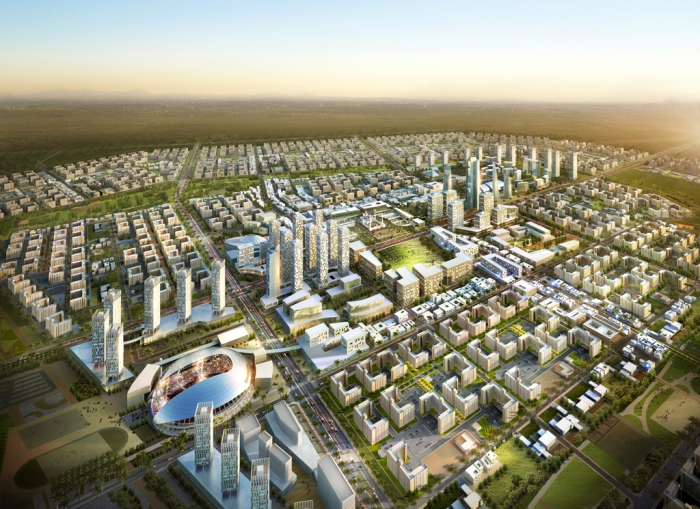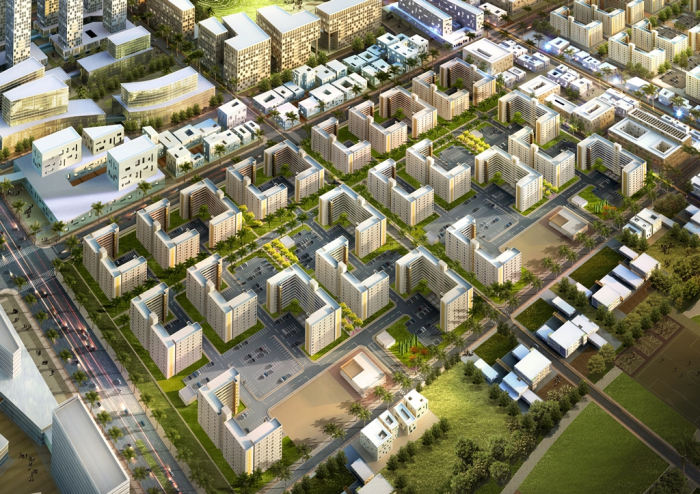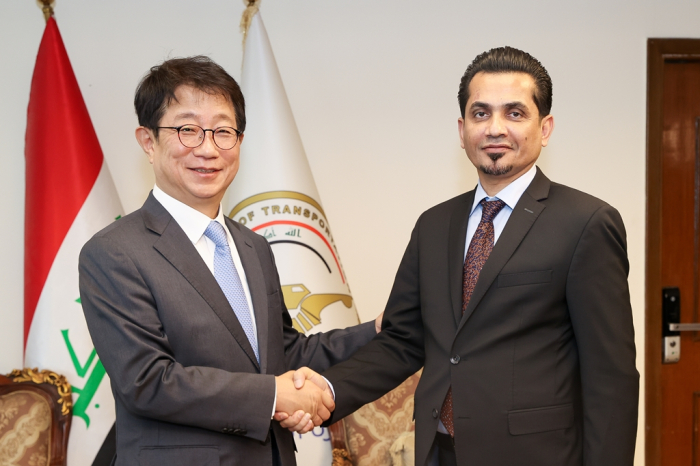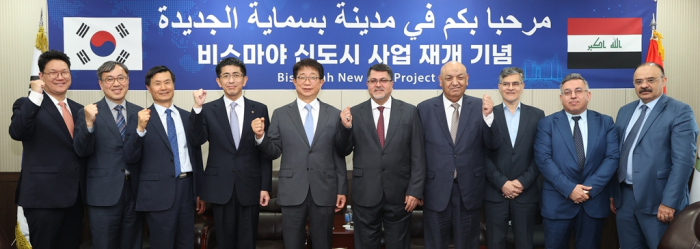
Hanwha Engineering & Construction Co., an affiliate of South Korea’s Hanwha Group, said on Friday it is set to fully resume a $10.4 billion megaproject to build a new city on the outskirts of Baghdad, Iraq – halted for nearly two years over unpaid bills.
Hanwha E&C, a subsidiary of the group’s holding firm Hanwha Corp., said in a regulatory filing that it has signed a revised contract with the Iraqi National Investment Commission (NIC), the contracting authority of the Bismayah new city project.
The value of the revised deal is an increase of $277 million from the original contract worth $10.12 billion, according to Hanwha.
Completion of the project is scheduled for 2032.
The revised contract is subject to approval by Iraq’s Council of Ministers.
Hanwha said contract terms could be altered or canceled altogether during approval.

IRAQ FAILED TO PAY DUES FOR TWO YEARS
Signs of the project’s resumption became clear in February when Korea’s Minister of Land, Infrastructure and Transport Park Sang-woo agreed with Haider Muhammed Makkiya, head of Iraq’s NIC, to resume the project.
In October 2022, Hanwha E&C said it would terminate its Bismayah construction work in Iraq.
The Bismayah New City scheme, billed as the “biggest city development project in Iraqi history”, was first proposed in 2010 and awarded to Hanwha in 2012.
The plan was to build 100,000 housing units on 1,830 hectares of land with all the necessary transport, water, education, health and power infrastructure.
However, Hanwha halted work on the project in September 2020 after completing 30,000 houses as OPEC member Iraq failed to pay its dues for two years.

The decision to resume the urban development project comes after Hanwha received $230 million out of the outstanding $629 million in December 2023.
Hanwha said it expects to fully resume the project to complete the unfinished portion of the apartment construction.
Of the 30,000 housing units completed in Bismayah, some 21,480 units have been handed over to the NIC and are currently occupied by local residents.
“We could say the project is Korea’s largest export of a K-style new city, spanning 18.3 square kilometers – six times the size of Yeouido, a business district in Seoul – and is designed to house an estimated 600,000 residents,” said a Hanwha official. “We expect the resumption of the project to revitalize the stagnant construction market in Iraq and contribute to its economic growth.”
KOREA HAS ROLE TO PLAY
During a February meeting with Iraqi Minister of Transportation Razzaq Muhaibis Al-Saadiawi in Baghdad, Korean Minister Park said Korea has a role to play in Iraq’s ambitious urban development projects, given Korean builders’ ample experience in urban development and smart city construction projects.

The Korean government sees the expected full resumption of the Bismaya project as a stepping stone for Korean builders to gain further access to Iraq’s pursuit of other new city development projects.
In Iraq, Daewoo Engineering & Construction Co. has clinched a $2 billion project to build breakwaters, terminals and connecting roads at the Grand Faw Port.
During the meeting with Minister Al-Saadi, Park said Korean companies can invest in petrochemical complexes and power plants near the port.
In response, the Iraqi minister said he hopes Korean companies will actively participate in Iraq’s $17 billion railway and road network projects.
By Oh-Sang Yoo
osyoo@hankyung.com
In-Soo Nam edited this article.














